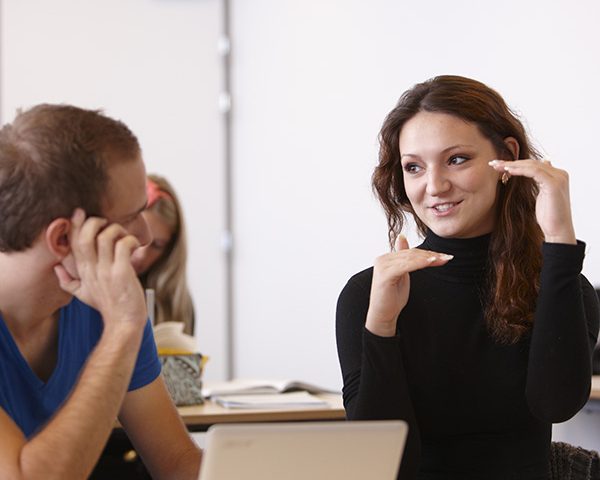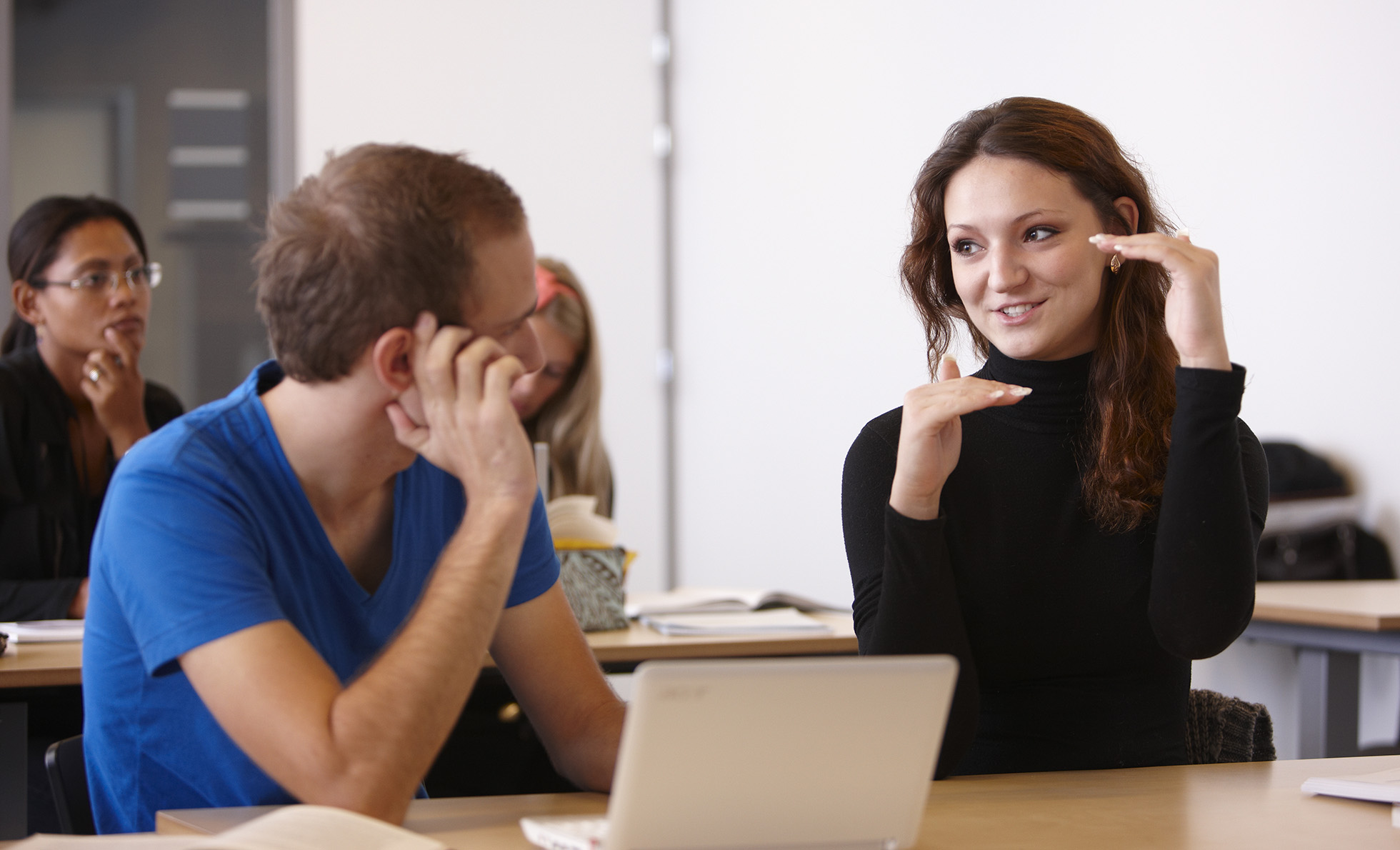Affected by teacher education

Inclusive education starts in inclusive teacher education
July 13, 2018
Mesila – A Selection Battery for Future Teachers
August 21, 2018Affected by teacher education

A tension between measurable outcomes and Bildung
As teacher educator, educating secondary school teachers in Norway I often visit student teachers in their field practice. The last decade I have experienced an increased focus on measurable outcomes and the cognitive dimension of learning in schools. The teaching seems predictable. It feeds young people’s thinking, but does not ‘reach their heart or touch their soul’ (Biesta, 2017, p. 418). The focus on measurable outcomes is part of a global trend of marketization of education (Hargreaves & Goodson, 2006). Economic growth seems to be a driving force, but schools are also places to live together with others and to grow as human beings (Eisner, 2002). It is not only about knowledge, but also about how people will use their knowledge and about who they are or become. These aspects are covered by the concept Bildung and by Biesta’s (2010) concept subjectification.
The purpose of education
Biesta (2010) differs between three purposes of education: qualification, soscialisation and subjectification. Qualification is connected to predefined goals and outcomes. Socialisation is about being adapted to the society while subjectification is about getting a voice and adding to the existing order. We need all three functions, and they interact. However, here I will pay attention to subjectification or Bildung and argue that not only students in schools, but also student teachers need their own voice. One reason for that is that the teaching role is complex and teachers have to make their own and independent judgements. Another reason is related to teacher qualities that are not always measurable.
A study among students in upper secondary school in Norway showed that students emphasized teachers’ commitment, their attitudes and ability to build relationships (Ulvik, Kvam & Eide, 2018). These qualities build on insight and internalisation that cannot be forced upon people by telling them. A third reason is connected to the fact that predefined outcomes are limited. They do not give space for what we do not know, something that is crucial aiming for an unsecure future (McKernan, 2010). Furthermore, Eisner (2002) argues, there are different forms of knowledge that need to be represented in different ways.
Through the Bologna process one has tried to secure the quality in higher education and make it more comparable by identifying measurable outcomes (European Commission, 2015).
 My concern, however, is how to secure aims that are not measurable.
My concern, however, is how to secure aims that are not measurable.
In my doctoral theses I found five aspects that should be payed attention to in order to promote Bildung in teacher education (Ulvik, 2009). In the following I will shortly present these points.
How to promote Bildung
Firstly, student teachers need role models. They come into teacher education with images of what it means to be a teacher. These taken for granted preconceptions should be challenged by alternative images (Loughran, 2014). Student teachers need examples and varied experiences, how their teacher educators teach becomes part of the message (Kelchtermans, 2009; Lunenberg, Korthagen, & Swennen, 2007).
Secondly, to get insight, not only being persuaded, takes time and in depth learning. This view corresponds with Biesta’s (2017) recommendation for supporting subjectification by slowing down and giving time. Teacher education that aims to support Buildung cannot include too many topics. One has to prioritise. The third point is related to have an overall perspective on education. Human beings are more than the intellect. In order to promote Bildung, there is a need for varied representations (Eisner, 2002). Furthermore, teachers need a vision that provides a horizon to test their own preconceptions against and that their critical thinking is supported (Biesta, Priestly, & Robinson, 2015).
Fourthly, and a consequence of the third point, Bildung depends on interaction with others. To develop own understanding, student teachers need to be part of a community in which their understanding can be challenged (Gadamer, 2004/1975). Teachers are supposed to contribute to an including learning environment among students. Through meetings and processes in their education these aspects can be demonstrated. Interactions among student teachers are thereby crucial.
The last and fifth point is to allow student teachers to develop their own voice and promote independent judgements. For the future we need teachers who are creative, able to think for themselves and who can add to the existing order (McKernan, 2010). Measurable objectives that inform the society about student teachers’ knowledge, skills and competences are limited.
 We also need to give space for what cannot be captured in predefined outcomes and for what we cannot control.
We also need to give space for what cannot be captured in predefined outcomes and for what we cannot control.
There is always a risk in education, but moving beyond a fixed destination also makes it a lot more fun.
References
Biesta, G. (2010). A new logic of emancipation: The methodology of Jaques Rancière. Educational theory, 60(1), 39-59.
Biesta, G. (2017). Touching the soul? Exploring an alternative outlook for philosophical work with children and young people. Childhood & philosophy, 13(28), 415-452.
Biesta, G., Priestley, M., & Robinson, S. (2015). The role of beliefs in teacher agency. Teachers and Teaching: theory and practice, 21(6), 624-640.
Eisner, E. W. (2002). From episteme to phronesis to artistry in the study and improvement of teaching. Teaching and Teacher Education, 18(4), 375-385.
European Commission (2015). The European Higher Education Area in 2015: Bologna Process Implementation Report. Luxembourg: Publications Office of the European Union.
Gadamer, H-G. (2004/1975). Truth and method. London, New York: Continuum.
Hargreaves, A. & Goodson, I. (2006). Educational change over time? The sustainability and nonsustainability of three decades of secondary school change and continuity. Educational Administration Quarterly, 42(1), 3-41.
Kelchtermans, G. (2009). Who I am in how I teach is the message: self-understanding, vulnerability and reflection. Teachers and Teaching: theory and practice, 15(2), 257-272.
Loughran, J. (2014). Professionally developing as a teacher educator. Journal of Teacher Education, 65(4), 271-283.
Lunenberg, M., Korthagen, F., & Swennen, A. (2007). The teacher educator as a role model. Teaching and teacher education, 23, 586-601.
McKernan, J. (2010). A critique of instructional objectives. Educational Inquiry, 1(1), 57-67.
Ulvik, M. (2009). Lærerutdanning som danning. Tre stemmer i diskusjonen.
Doktorgradsavhandling University of Bergen.
Ulvik, M., Kvam, E. K., & Eide, L. (2018). Affected by teaching. Paper presented at Nordic Educational Research Association Conference in Oslo, March.





